Home > Responsible Tourism
Responsible Tourism: Giving Back to Nature and Community
Responsible tourism is about respecting, protecting, and benefiting local communities, cultures, and the environment. For travellers, this means making holiday choices with these concerns in mind—from the destinations they visit and the way they travel to the services they choose once they arrive.
"Making better places for people to live in and better places for people to visit."
Responsible tourism requires operators, hoteliers, governments, local people, and tourists to take responsibility and action towards making tourism more sustainable. The World Travel Market has adopted the Cape Town Declaration definition of responsible tourism for its World Responsible Tourism Day, encouraging the industry to take responsibility for sustainability and demonstrate their commitment.
The Cape Town Declaration recognises that responsible tourism takes various forms. It is characterised by travel and tourism that:
- Minimises negative economic, environmental, and social impacts.
- Generates greater economic benefits for local people, enhances the well-being of host communities, and improves working conditions and access to the industry.
- Involve local people in decisions that affect their lives and opportunities.
- Make positive contributions to the conservation of natural and cultural heritage, helping to maintain the world’s diversity.
- Provides more enjoyable experiences for tourists through meaningful connections with local people and a deeper understanding of cultural, social, and environmental issues.
- Ensures accessibility for physically challenged individuals.
- Is culturally sensitive, fosters respect between tourists and hosts, and builds local pride and confidence.
We are GSTC Certified
Forest Escapes Koyna is proudly GSTC Certified, recognised by the Global Sustainable Tourism Council for meeting the highest standards of responsible and sustainable tourism. From conserving the rich biodiversity of the Sahyadri landscape and supporting local communities to reducing our environmental footprint, sustainability is woven into every aspect of the Forest Escapes experience.
Stay with us and discover a retreat where sustainability feels effortless, immersive, and deeply connected to nature!

How Can You Help?
Following is a list of things that each one of us can undertake in our lifestyles and travels to help reduce the impact of global warming and eventually combat climate change. These collective actions are a step forward, towards a ‘Green Lifestyle’.
_59de1d93)
Planning your Holiday
Choose responsible travel companies and eco-conscious hotels that support the three pillars of sustainable tourism: environmental care, community support, and local economy. Look for accommodations certified by programs like STCI, LEED, or Green Key. Prioritize hotels that source food locally (within 150 km), compost, reuse greywater, and provide in-room recycling. In protected areas, choose ecolodges or homestays engaged in conservation efforts. Always review their website or ask directly about their sustainability practices.
_acdda5af)
When leaving home for your holiday
Don't leave without preparing your home for a holiday. Turn off light switches and unplug all electricals other than the fridge, freezer, and any other electrical appliances that need to stay on. Unsubscribe daily newspapers and download your e-ticket instead of paper printouts
_53b33004)
As you Travel
Choose your Mode of Transportation If travel time and physical issues are not a major concern, select a mode of transport that allows you to offset carbon. One can use an Adventure Travel Trade Association or United Nations carbon calculator to offset the carbon footprint. On a road, journey try and share a vehicle. Travel Light Packing efficiently helps to reduce carbon emissions from aero planes. The lighter the aircraft, the less fuel it burns, and hence decreased carbon emission.

At the Destination
Travel responsibly: carry refillable toiletries to avoid hotel miniatures and reduce plastic waste. Dispose of your waste responsibly—never throw plastic or paper waste while traveling. These materials don't degrade and may harm grazing animals. Carry your waste back for proper segregation and disposal. Use stainless-steel tumblers and refill from RO/UV-filtered sources to avoid single-use plastic. Conserve water and electricity—reuse towels, switch off lights, and avoid one-time-use items like plastic straws and stirrers. Encourage others to follow suit—small actions make a big difference
_d2ed520f)
Explore Destinations Beyond
Several destinations today are faced with the phenomenon of ‘overtourism’. Don’t follow the crowd. Excess only hurts the destinations and does not add much to the local economy. Economic and social benefits from tourism are significant when less frequently visited destinations also attract visitors. It helps in the sustainable growth of the region. Explore and taste local food, visit local markets, lesser-known protected areas, this supports the local economy, inculcates a sense of pride amongst the local community, and thus incentivizes them to stay on and not migrate to cities.
Shopping and Using Local Services
Responsible tourism is all about hiring local guides and taxis, eating local food, and shopping for local products, giving back to the local community that plays a major role in maintaining and preserving the essence of the place. Locally made crafts and souvenirs may not always be cheaper, but purchasing them ensures your contribution to the economy has a more direct and positive impact.
_3c3dc9d0)
Travelling More and Preserving Local Culture
Preserving the culture and respecting the local customs and traditions of a place are two of the most important aspects of tourism. When you visit a destination, you experience its unique culture, festivals, and traditions, helping to keep them alive.
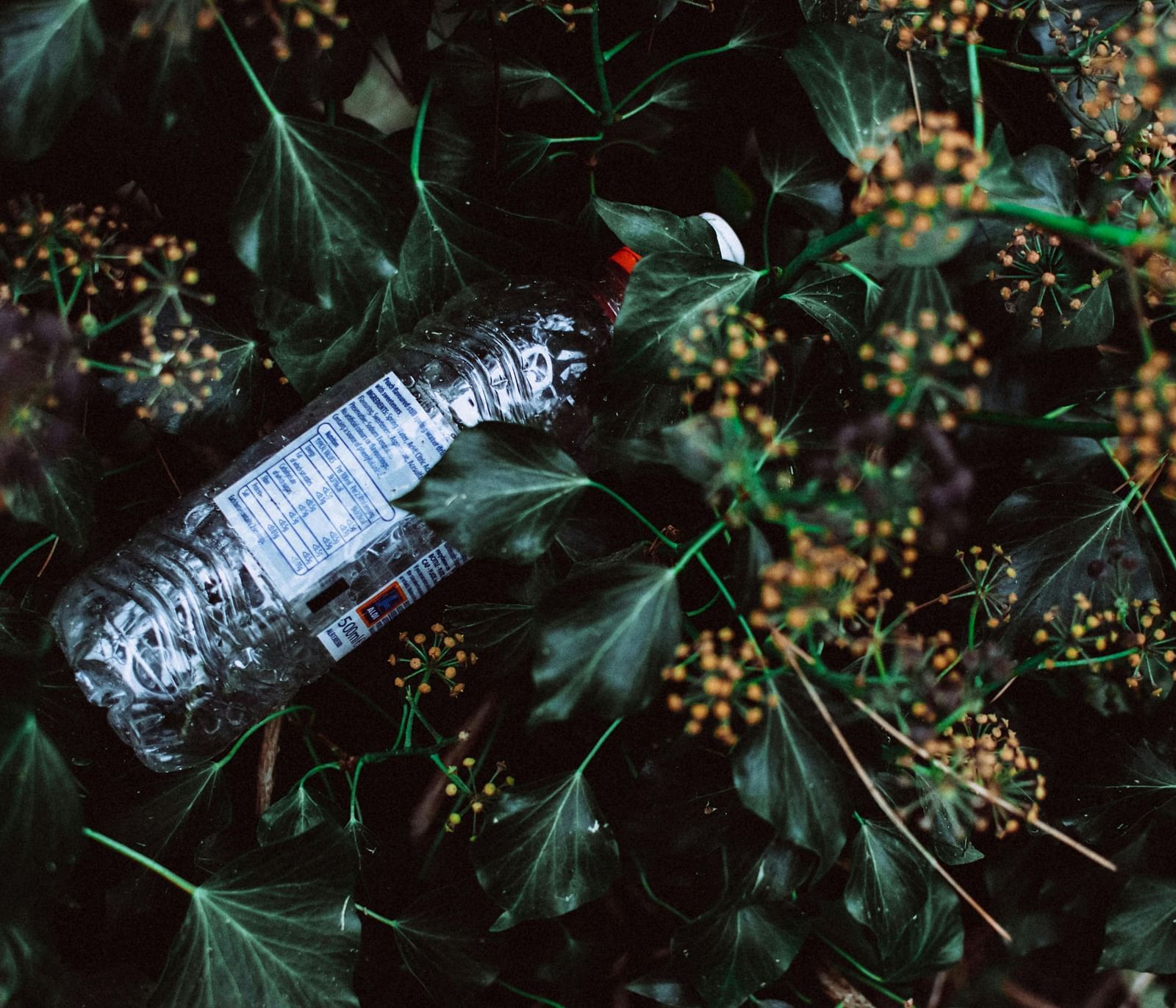
Protecting the Environment
Responsible tourism involves taking small steps to reduce the environmental impact caused by irresponsible tourism. Simple actions, such as avoiding littering, walking whenever possible instead of driving, carrying reusable water bottles, and respecting natural resources, help preserve the sanctity of a place. Without nature and natural beauty, tourism cannot thrive.
_cb394a9a)
Supporting Future Generations
Helping and supporting local conservation projects will aid in maintaining the natural beauty of a place for future generations. While we travel and enjoy different parts of the world today, it is equally important to ensure that nature and culture are well-preserved for those who come after us.
Shopping and Using Local Services
Responsible tourism is all about hiring local guides and taxis, eating local food, and shopping for local products—giving back to the local community that plays a major role in maintaining and preserving the essence of the place. Locally made crafts and souvenirs may not always be cheaper, but purchasing them ensures your contribution to the economy has a more direct and positive impact.
Travelling More and Preserving Local Culture
Preserving the culture and respecting the local customs and traditions of a place are two of the most important aspects of tourism. When you visit a destination, you experience its unique culture, festivals, and traditions—helping to keep them alive.
Protecting the Environment
Responsible tourism involves taking small steps to reduce the environmental impact caused by irresponsible tourism. Simple actions, such as avoiding littering, walking whenever possible instead of driving, carrying reusable water bottles, and respecting natural resources, help preserve the sanctity of a place. Without nature and natural beauty, tourism cannot thrive.
Supporting Future Generations
Helping and supporting local conservation projects will aid in maintaining the natural beauty of a place for future generations. While we travel and enjoy different parts of the world today, it is equally important to ensure that nature and culture are well-preserved for those who come after us.
How We Do It
We at Agreen Hotels & Resorts are a group of environmentally conscious hotels and resorts that believe in giving back to nature what we have gained from it. At Agreen Hotels, we are committed to responsible tourism.
Everything that comes from nature goes back to it, so why disturb it? Our properties are designed to leave the smallest ecological footprint and operate on a sustainable model, providing authentic local experiences to our guests while engaging extensively with the local community. Our locally trained men and women are dedicated to bringing you closer to the hospitality of the region.
We Follow These Principles
Land Use and Wildlife
- Only local tree species are planted within the campus and the surrounding areas of the resort.
- Landscaping is kept to a minimum and natural terrain and vegetation are retained on the campus.
- Participation in local conservation and reforestation schemes.
- Organic manure and decomposed kitchen waste are used for the kitchen garden and plantations.
- Minimum disturbance to natural fauna within the campus.
- Information boards about local wildlife are displayed within the property.
- The usage of lights is optimised to minimise disturbance to nocturnal wildlife.
Equity and Local Economy
- 95% of our staff are local.
- Explore Koyna, a group of local boys who know the Sahyadri mountains and its forests, conduct jungle safaris and adventure activities at the resort.
- Providing supplementary income to local farmers, taxi drivers, doctors, and local families.
- We try to source most of our products within a 25 km radius.
- All our vegetables are sourced locally, either directly through local farmers or from our in-house kitchen garden.
- We source and prepare only fresh river fish directly from the Koyna River, noted as the cleanest river in Maharashtra with zero pollutants.
- Mutton preparations, a regional speciality, are served using authentic goat meat, known for its unique taste.
- Our in-house granary offers locally made products, from home souvenirs to Ayurvedic items. Your purchase directly benefits local communities, supporting their skills and knowledge.
- We source our juices and pickles from Koyna Agro, a local company producing healthy and organic natural products, also available at popular retailers.
- Our milk and other dairy products come from Sakas, a local dairy producer comprising local people striving for a better livelihood, contributing to the growth and development of rural communities.
- We ensure that suppliers are paid a fair price for their products and services.
- We comply with all labour laws of the state.
Culture and Community
- Local cultural shows are organised at the resort to showcase the region’s rich heritage.
Zero Waste
- Reduced use of plastic.
- Water purifiers installed in accommodation units to reduce bottled water consumption.
- The usage of cloth bags and newspaper bags is encouraged.
- Biodegradable bags are used in waste bins.
- Degradable and biodegradable waste segregation.
- Decomposition pits are used for processing kitchen waste.
- A biogas plant processes kitchen waste.
- Plastic, paper, glass, and metal cans are sent for recycling.
Sustainable Water
- Water conservation through drip irrigation for gardens.
- STP (Sewage Treatment Plant) treated water is used for gardens and plantations.
- Foam-flow faucets are installed to reduce water consumption.
- Groundwater recharging is practised.
Sustainable Transport
- We plan to use electric buggies for transportation within the resort.
- Vehicular movement will be minimised within the resort.
- The majority of staff are accommodated within the property, reducing transportation needs.
Zero Carbon
- Diesel generators are used only during emergencies.
- Diesel generators with electronic governors are used to reduce fuel consumption.
- We have installed a 60 kW solar plant for our electricity needs.
Local and Sustainable Food
- All meals served in the restaurant are prepared by local women specialising in authentic local cuisine.
- All vegetables and cereals are sourced locally, mostly directly from farmers.
- Many herbs and vegetables are organically grown on the resort premises.
Health and Happiness
- We serve healthy food in the restaurant and ensure that all staff working in the resort are happy and satisfied.
- Our all-women kitchen team prepares the best local cuisine, leaving you with a finger-licking smile.
Sustainable Material
- Locally available and eco-friendly materials are used in construction.
Land Use and Wildlife
The resort champions eco-conscious practices by planting only native tree species, preserving local biodiversity. Landscaping is minimal to maintain natural terrain, and we actively support local conservation and reforestation initiatives. Organic manure and composted kitchen waste nourish the kitchen garden, ensuring sustainable waste management. Care is taken to minimize disturbance to wildlife, with optimized lighting to protect nocturnal species. Informative boards around the property educate guests about local wildlife, fostering appreciation for the region’s natural heritage.
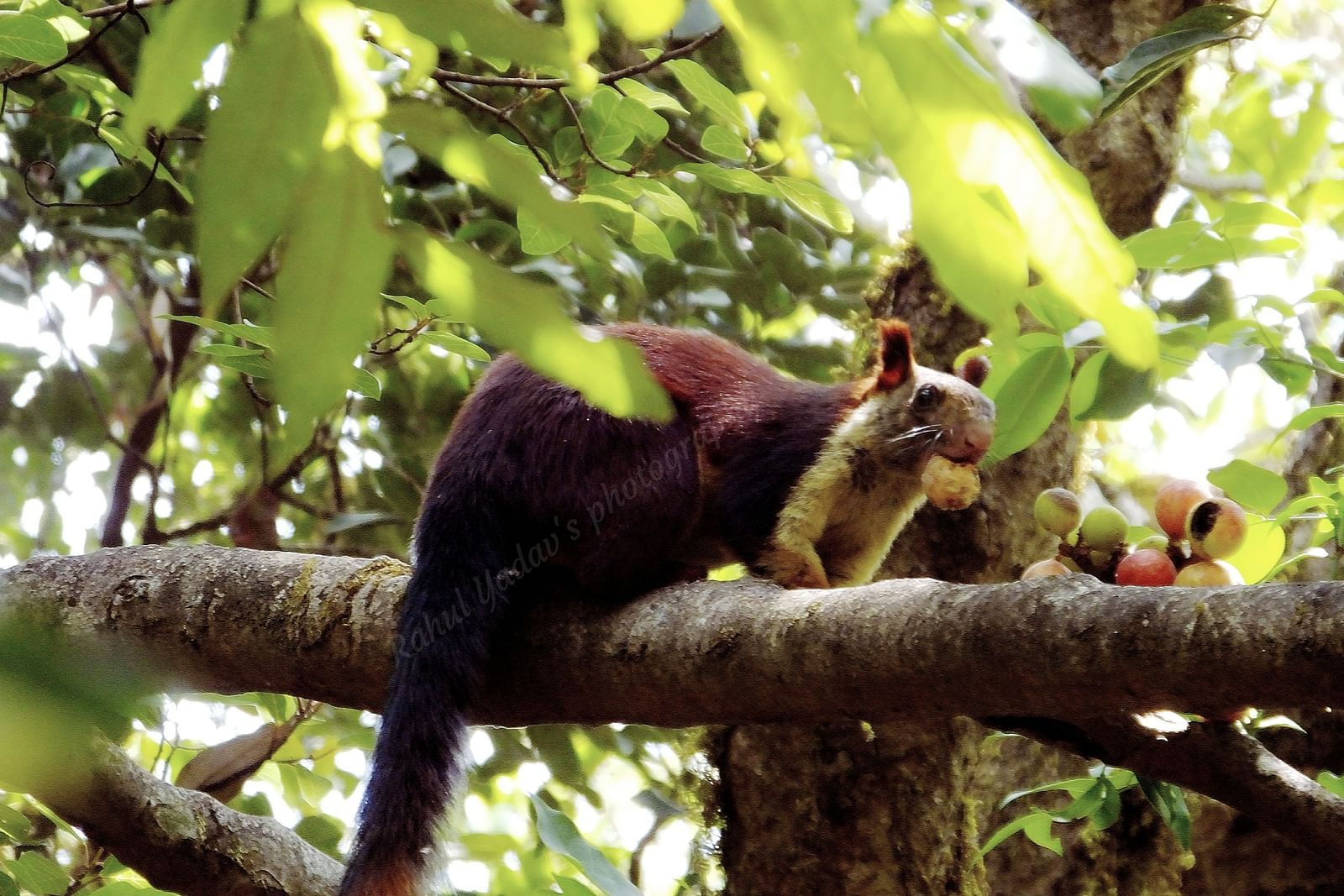
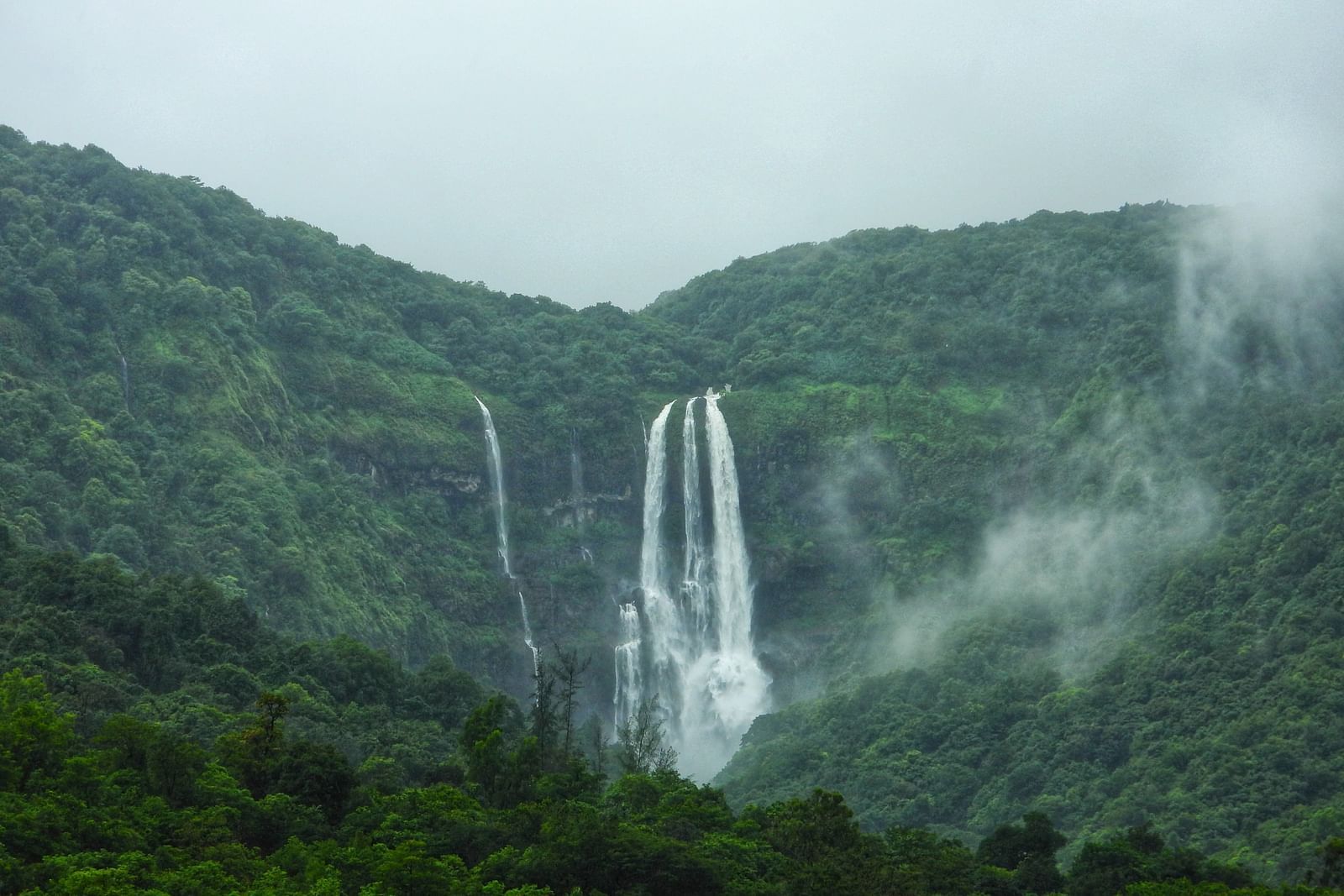
Equity and Local Economy
The resort is deeply connected to its local community, with 95% of the staff being locals. Adventure activities and jungle safaris are led by Explore Koyna, a group of local guides familiar with the Sahyadri mountains. We support the local economy by providing income to farmers, taxi drivers, doctors, and families, sourcing most products within a 25 km radius.
Our kitchen uses fresh river fish from the pristine Koyna River, regional mutton delicacies, and vegetables from nearby farms or our own garden. The in-house granary offers locally made souvenirs, Ayurvedic items, and organic products from Koyna Agro, while dairy is sourced from Sakas, a community-driven initiative. We ensure fair pricing for suppliers and strictly follow state labor laws, reflecting our commitment to ethical and sustainable practices.
.
Culture and Community
The resort celebrates the region’s rich heritage by hosting local cultural shows that offer guests an authentic experience of the community’s traditions, music, and art. These events not only enrich the guest experience but also provide a platform for local artists to showcase their craft and preserve cultural practices. By fostering these performances, the resort creates a deeper connection between visitors and the local way of life, promoting cultural appreciation and community engagement
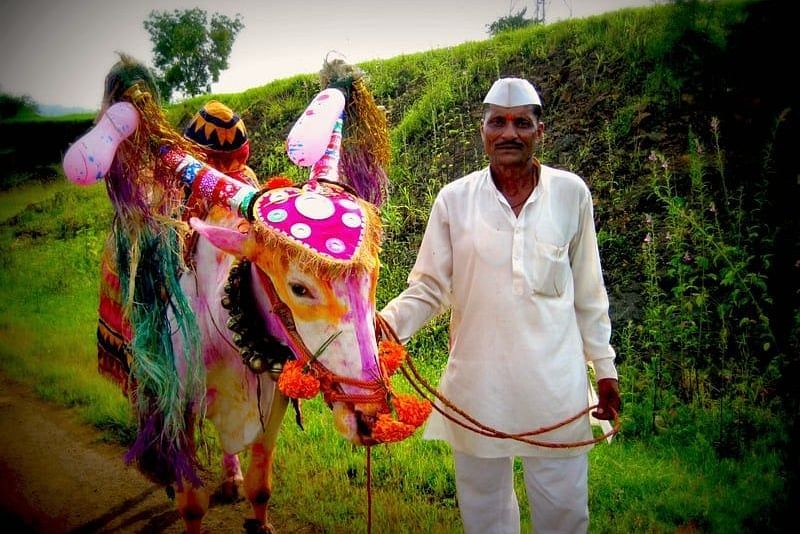
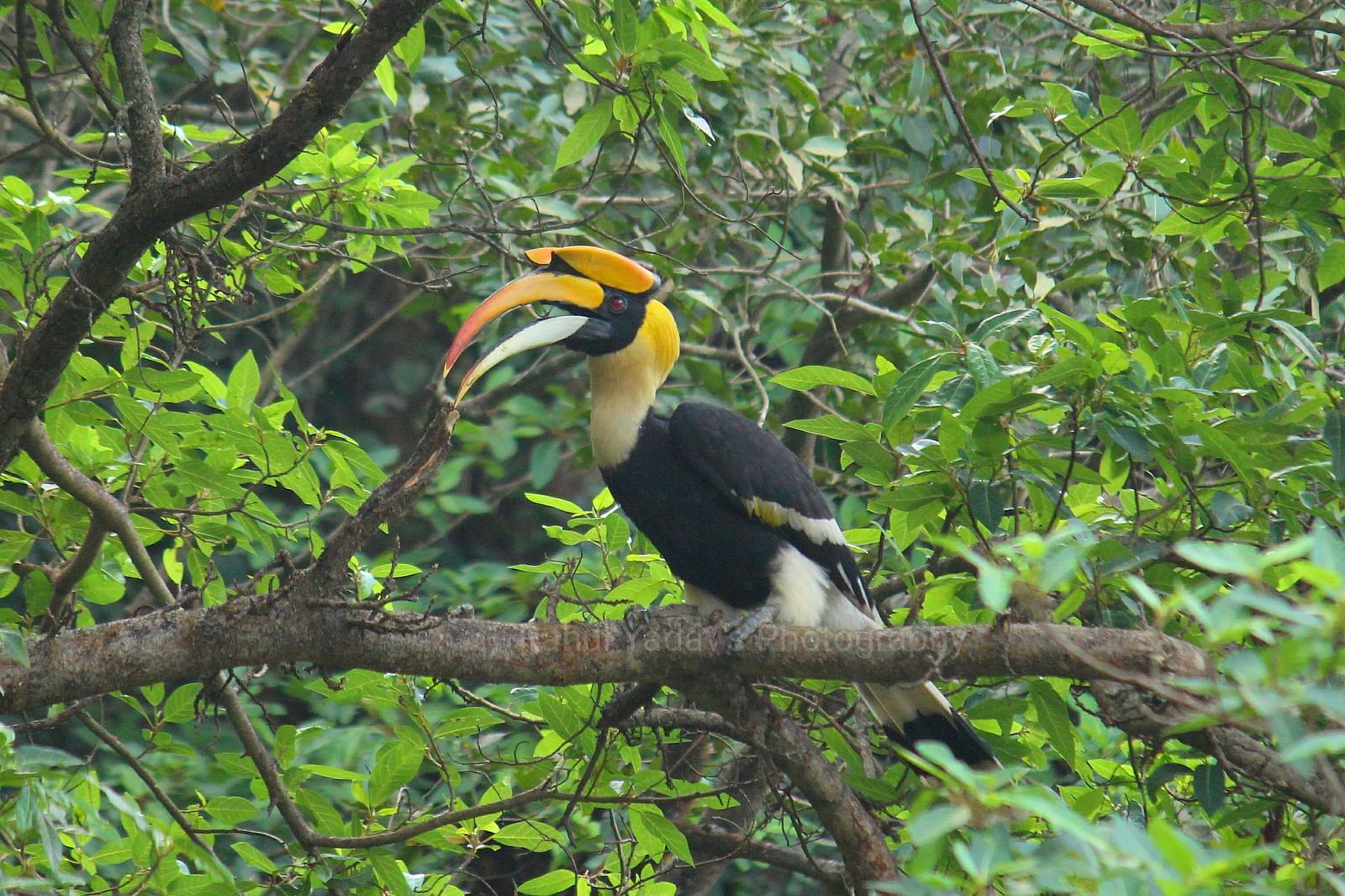
Hornbill Conservation Initiative
As part of our commitment to conserving local biodiversity, we proudly support the Sahyadri Sankalp Society's hornbill conservation efforts in the Western Ghats. Known as the "Farmers of the Forest," hornbills are vital for seed dispersal and forest diversity. Our partnership with the society, local communities, and conservation allies helps protect nesting habitats, run awareness campaigns, and promote community-led conservation. This initiative reflects our belief that true hospitality extends beyond our walls, embracing the forests, wildlife, and people of this land.
Learn More
Shop Sustainably. Empower Locally.
Our in-house store, Ecotique, is more than just a shop — it’s a celebration of sustainability and a platform for purpose-driven products. In partnership with grassroots NGOs and self-help groups across India, we offer a curated selection of beautiful, eco-friendly items, each crafted with care for the planet and love for the craft.
Here you’ll find:
Bamboo & Coconut Shell Essentials
Handmade Soaps & Forest Wellness Products
Upcycled Decor & Cloth Bags
Plantable Stationery & Seed Bombs
Traditional Tribal Crafts & Eco Toys
Every purchase supports rural livelihoods, promotes environmental awareness, and contributes to conservation efforts. Take home a story, not just a souvenir.

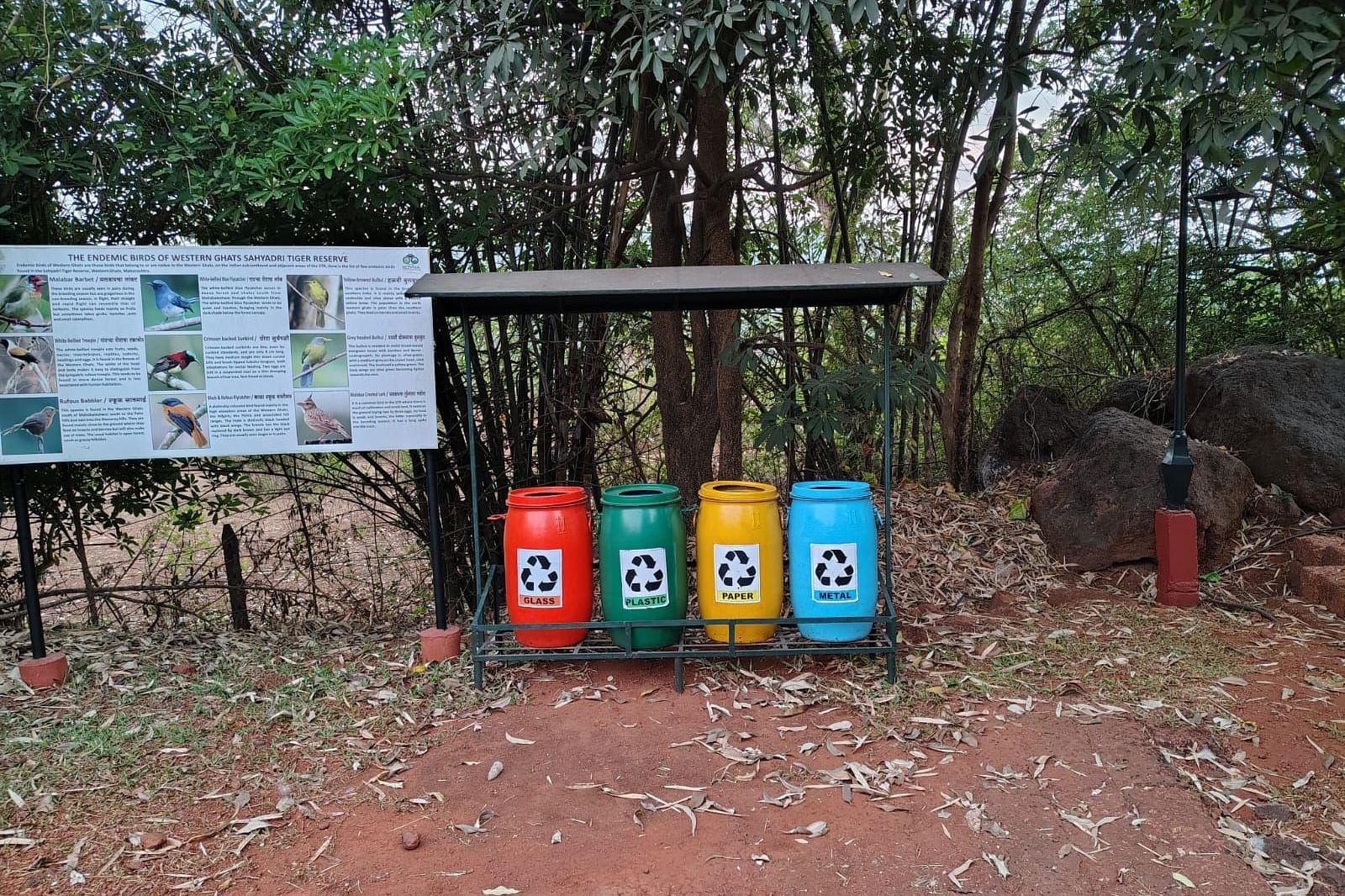
Zero Waste
The resort is committed to a strong zero-waste policy, minimizing its environmental impact through sustainable practices. Plastic use is minimized, with water purifiers in all rooms to replace bottled water, and in-house RO-treated water served in sterilized, reusable glass bottles. Guests are encouraged to use cloth and newspaper bags, while biodegradable bags are provided in waste bins.
Waste is carefully segregated into degradable and non-degradable categories, with kitchen waste processed in decomposition pits and a biogas plant. Recyclables like plastic, paper, glass, and metal are sent to authorized recycling units.
Eco-friendly amenities include bamboo toothbrushes, organic toothpaste, and herbal, eco-friendly bath products. Non-toxic, herbal insect repellents ensure a safe environment, while eco-friendly cleaning chemicals maintain hygiene without harming the ecosystem
Sustainable Water
The resort prioritizes water conservation through sustainable practices. Drip irrigation minimizes water use in gardens, while treated water from the on-site Sewage Treatment Plant (STP) is reused for landscaping. Foam-flow faucets reduce water consumption, and groundwater recharge systems help maintain the natural water table. Additionally, rainwater harvesting ensures efficient water use during the rainy season.
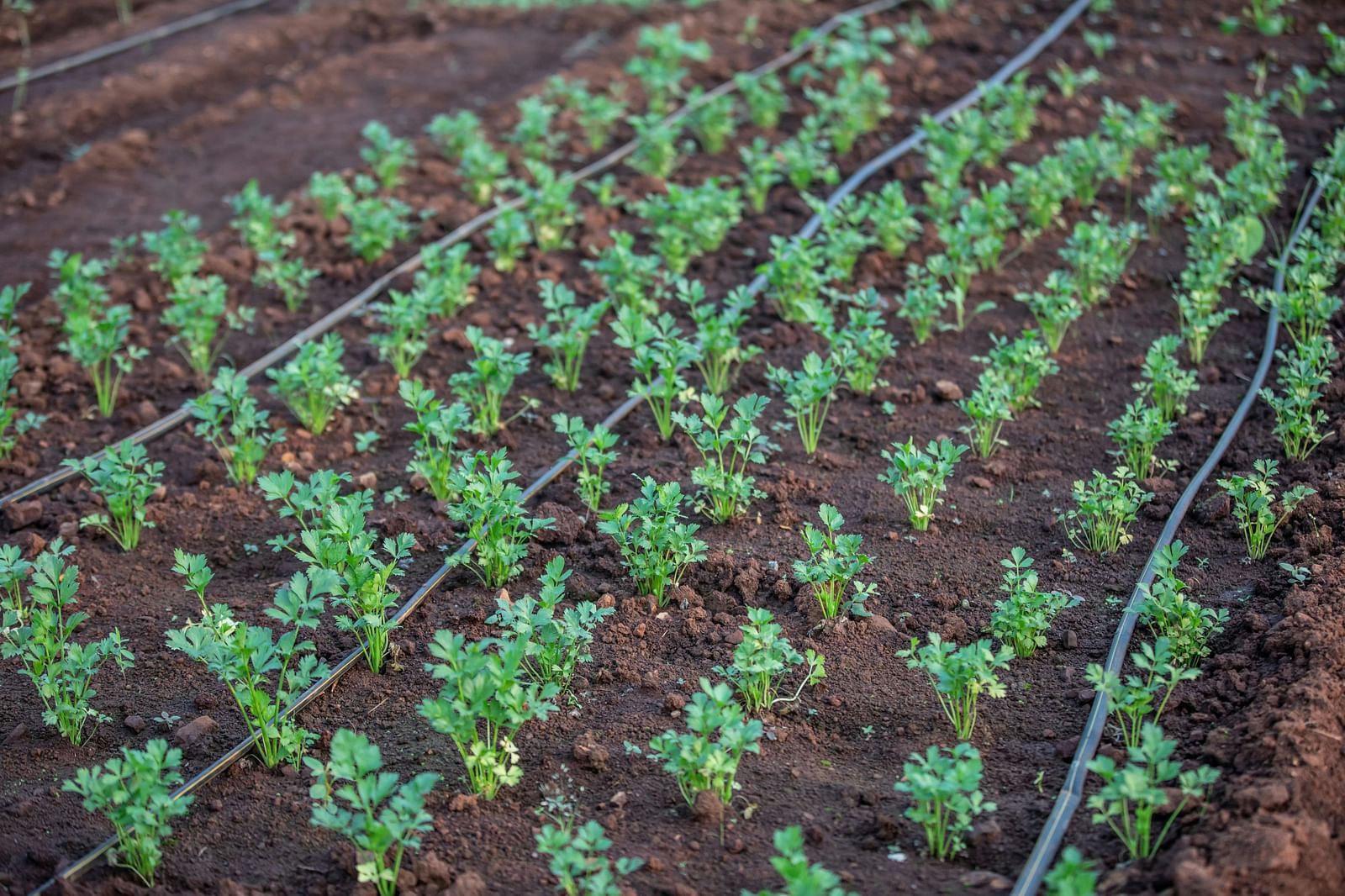
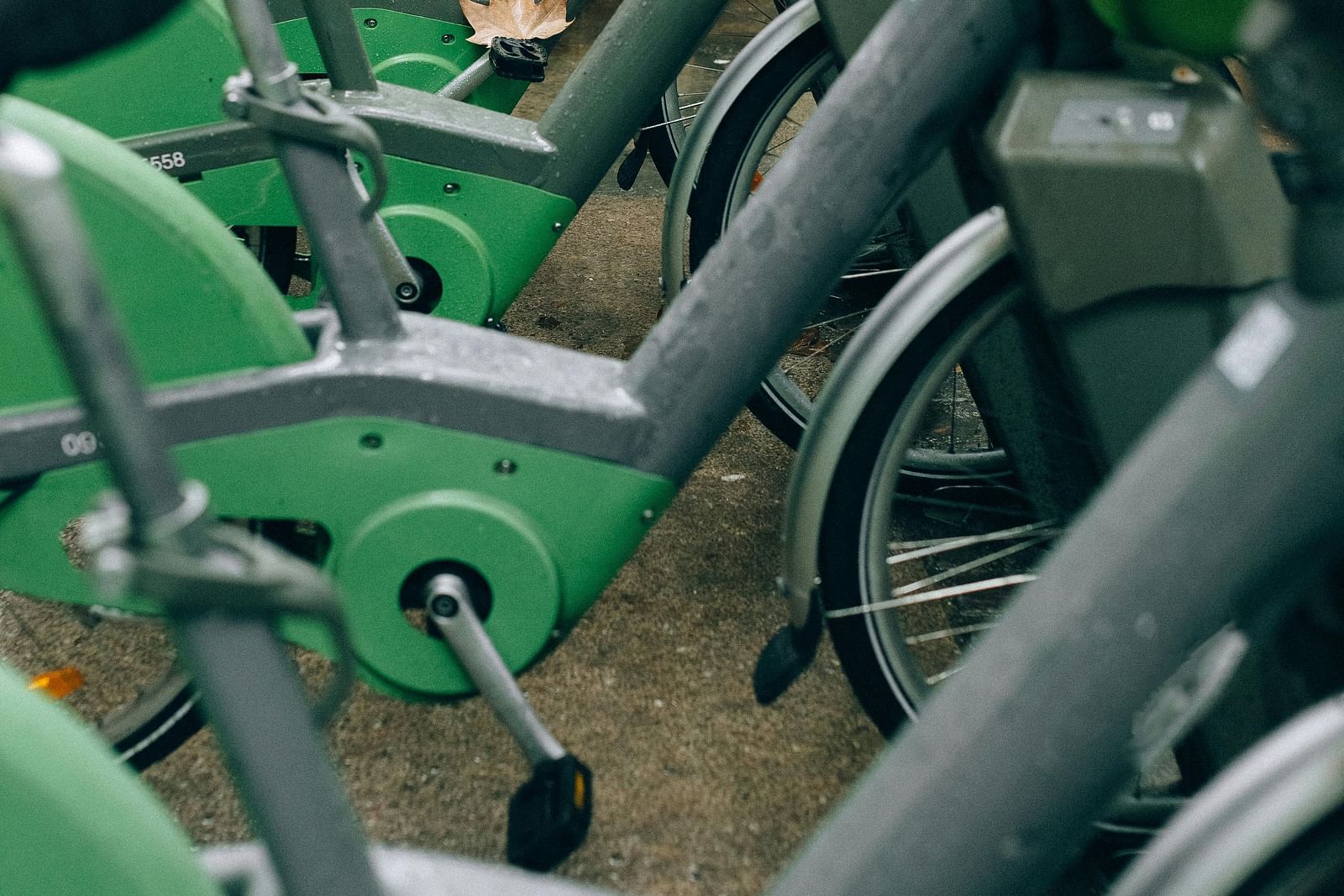
Sustainable Transport
The resort minimizes its carbon footprint by limiting vehicular movement within the property. Plans are underway to introduce electric buggies for internal transportation, promoting eco-friendly mobility. Most staff members are housed on-site, further reducing the need for daily commuting and supporting our commitment to sustainability..
Zero Carbon
The resort is committed to sustainable energy practices. A 60 kW solar power plant meets most of our electricity needs, promoting clean, renewable energy. Diesel generators are used only in emergencies and are equipped with electronic governors for optimal fuel efficiency. Additionally, 99% of our lighting is powered by energy-efficient LED lamps, minimizing our carbon footprint.

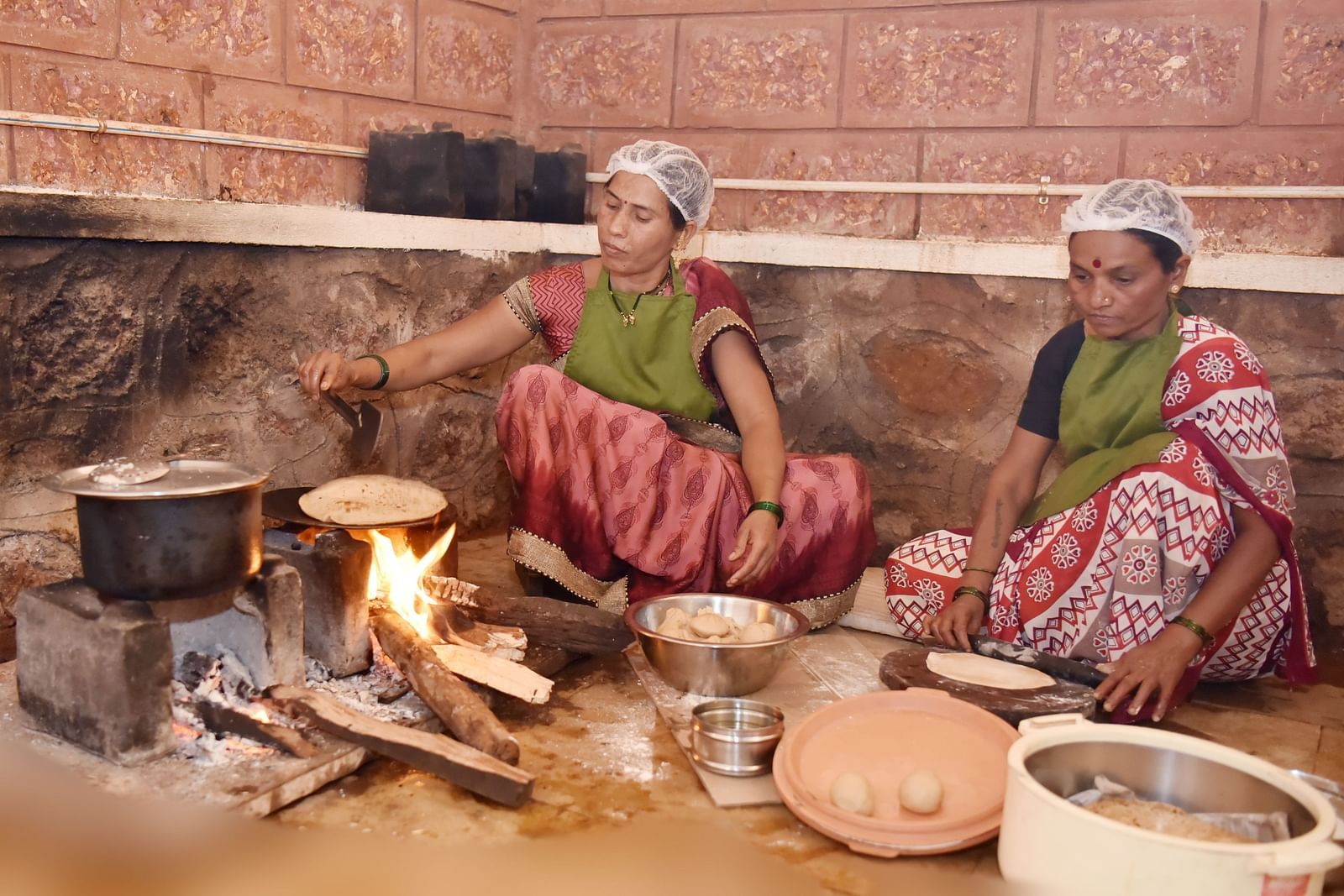
Local and Sustainable Food
The meals at the resort are lovingly prepared by local women, offering guests an authentic taste of traditional cuisine. All vegetables and cereals are locally sourced, many directly from farmers, while a variety of herbs and vegetables are organically grown on-site, ensuring freshness in every dish. Guests can enjoy local specialties like Kombdi Vade, Sol Kadhi, Prawn Malwani, and Pithla-Bhakri, made with ingredients from the resort’s own grounds. No artificial colors or MSG are used in any of our cuisines, and healthy oils like olive oil, rice bran oil, sunflower oil, or clarified coconut oil are used for cooking. Every dish highlights the region’s rich flavors and a commitment to sustainability
Sustainable Material
In keeping with its eco-conscious values, the resort has been built using locally sourced and environmentally friendly materials. This approach reduces the environmental impact of construction, supports the local economy, and ensures the architecture blends harmoniously with the natural landscape.
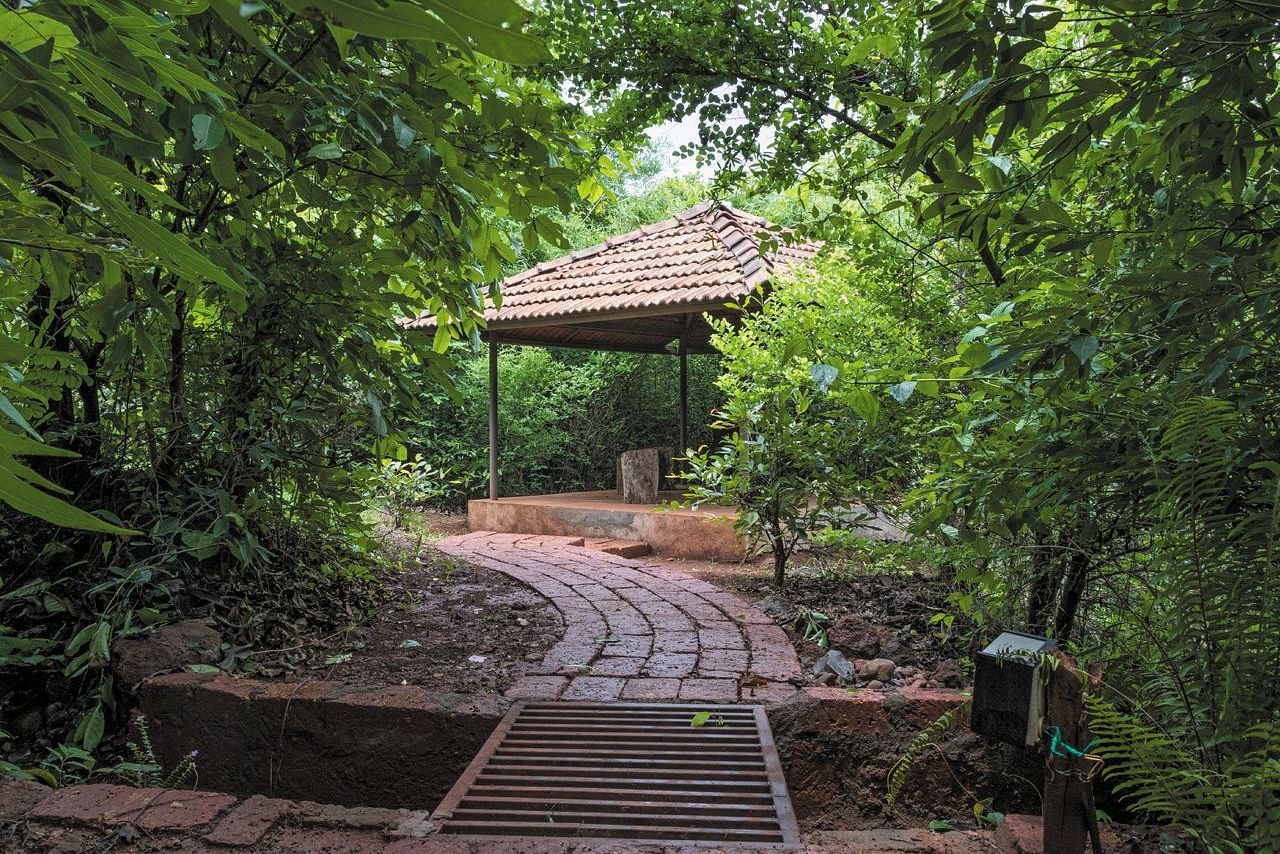
_71398254)